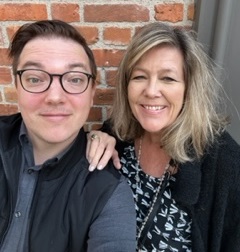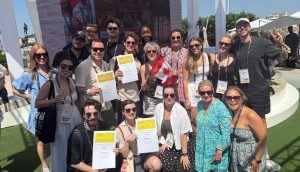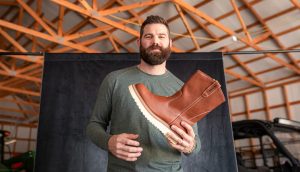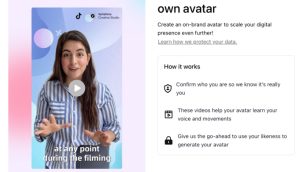
A lot of new media leaders have taken the reins of their agencies since the start of the pandemic. So, Lauren Richards thought it would be a good idea to sit down with them to learn how they have been leading their companies through the uncertainty of the last three years, their plans for challenges to come and, quite simply, to help readers get to know the new faces of the industry in Canada. Check back for a new profile every Thursday.
Given that I know Noah Vardon so well after having the good sense to hire him years ago at Starcom, it made sense to start my interview series with him.
Noah started in his role as president of Havas Media Canada in June 2021, fulfilling part of Alex Panousis’s former CEO role, which is interesting given that she was also a former boss from the aforementioned Publicis days. His big dreams for Havas are starting to come to pass, as it was short-listed as a Media Agency of the Year after a four year hiatus.
Noah has used his strong financial acumen to help ascend the ranks in media. His Starcom financial services clients liked him so much he joined the TD marketing team for a few years before segueing back to the agency side. He’s got style and a great smile, but he’s also very supportive, ambitious and somewhat reserved.
He has chosen The Soho House for our old school ad lunch, due to its laid back, all inclusive, non-private club-like feeling. When we discuss his hire at Starcom in 2007, he reminds me that he has a crazy photographic memory when he remembers every word of his several interviews, which concluded with my stamp of approval.
I barely remembered I hired him.
 When we start the interview, he politely says it’s an honour to be interviewed by me, which I honestly respond with how proud I am of his rise through the media ranks and how delighted I am to provide this piece to help the industry get to know him better.
When we start the interview, he politely says it’s an honour to be interviewed by me, which I honestly respond with how proud I am of his rise through the media ranks and how delighted I am to provide this piece to help the industry get to know him better.
We start by talking about the differences in leading an agency during the pandemic.
“It’s really about applying a lot of the principles you have in real life, where being present is really important,” he says. “I started with one-on-ones with every employee, on a bit of a listening tour. Our organization at the time was about 50 people. We are now 90 in one year. Being present is not the same during a pandemic. It’s purposeful. How you translate that into a virtual space is very important. Weekly virtual updates, celebrating successes, virtual learning including diversity and cultural impacts, we did it quickly and found our rhythm.”
He adds that there was a much greater connectivity developed with the Montreal office due to the new way of working. One of the great benefits I’ve found for multi-office companies is that the silos are gone, or at least greatly diminished.
I let him know I respected his rather bold decision to try and gather his troops physically as much as possible, believing connectivity and collaboration are greatly improved with in-person energy.
“We were one of the first media agencies back in the office,” he proudly states. I ask him how he did it. “We needed a flexible roadmap, we made sure we had safe space and lots of separation available, an online booking system. And then [recognize] the importance of changing these systems time and time again through the various waves.”
But although it was a lot of work, he believes it was worth it: employees benefited and appreciated the chance for in-person learning and development. He directly correlates the investment in people and connectivity to the dramatic improvement of employee turnover rates, which he thinks are at about 25-30% annually in the industry. He also finds that having the department lead dual reporting – to him and to their product counterpart in the U.S. – beneficial for keeping everyone abreast of current trends and best practice.
To differentiate itself in this sea of commoditized media, Vardon tells me about the agency’s belief in “meaningful media”: placements that are engaging, trusted and influential. Havas can translate this positioning right down to the GRP level. That means KPIs instead of cheap impressions, which lets it help clients make more informed decisions on what media has more value to them. Plus, he is developing a reputation for digital capabilities, something he wants Havas to be known for, alongside its talent.
When I ask Vardon what needs to change in the business and what should be tended to urgently, he points to the importance of diversity of audiences – he’s a strong believer in diversity and has reflected that in Havas’ media thinking, in addition to his own hiring choices. He also points to more local support and, most importantly, more transparency of costs and deliveries.
Sounds like he’s made some damn fine progress in less than a year and a half.























